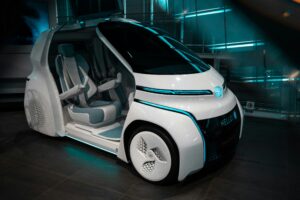Have you ever wondered how your favorite social media platform seems to know exactly what you’re interested in? It’s not just a coincidence – it’s the power of artificial intelligence (AI) at work. Companies like Facebook and Instagram use AI algorithms to analyze your online behavior and serve you personalized content. But what happens when AI goes beyond recommending the latest fashion trends or viral videos and starts making decisions for businesses?
AI-powered decision-making is revolutionizing the way companies operate, from automating customer service to optimizing supply chain management. According to a recent report by Gartner, AI is projected to create $2.9 trillion of business value by 2024. The implications are staggering, with AI poised to transform industries and reshape the economy.
But with great power comes great responsibility. As AI becomes more integrated into business processes, concerns about bias, transparency, and accountability are coming to the forefront. AI systems are only as good as the data they are trained on, and if that data is biased, the decisions made by AI can perpetuate and even amplify inequalities.
Ultimately, the rise of AI-powered decision-making presents both opportunities and challenges for businesses and society as a whole. As we navigate this new frontier, it’s crucial to ensure that AI is used ethically and responsibly, with a focus on creating positive outcomes for all stakeholders. After all, the future of business is not just about innovation – it’s about creating a more inclusive and equitable world for everyone.



